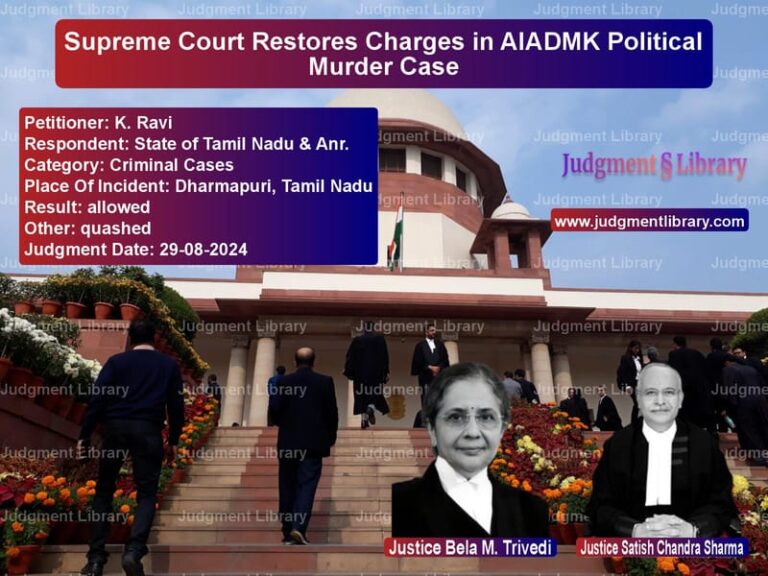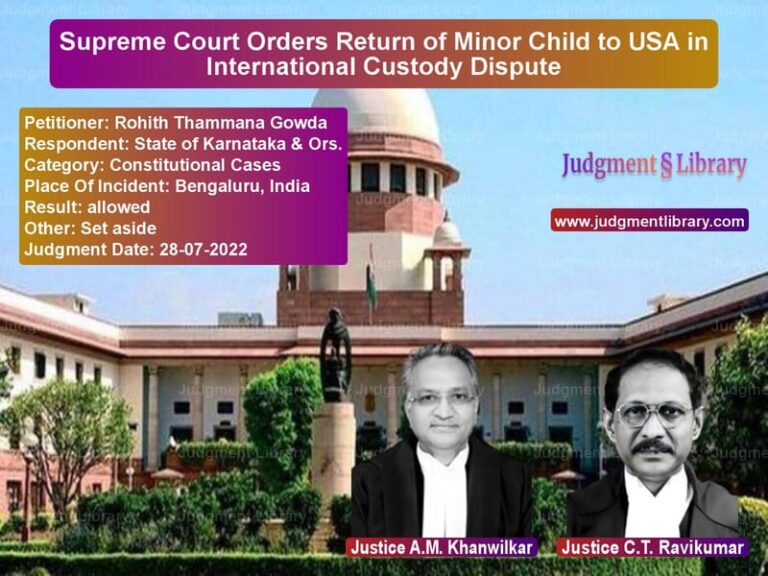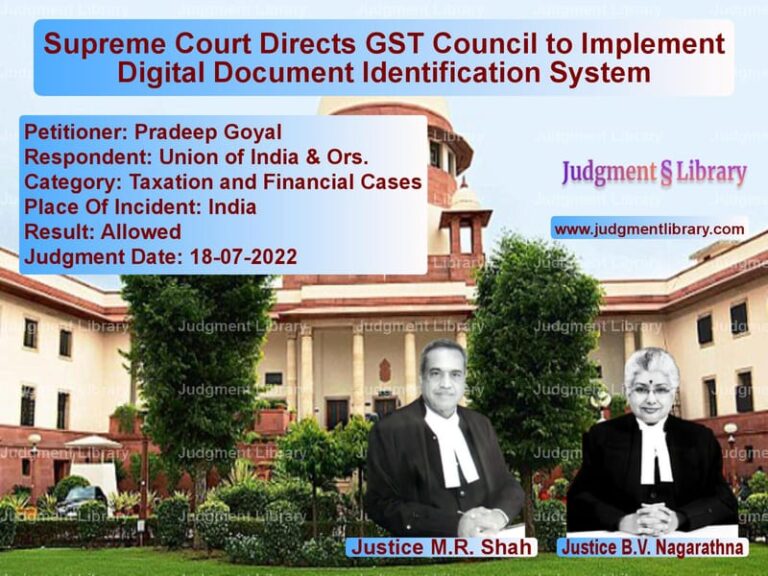Supreme Court Rules on Housing Loan Dispute: Key Takeaways for Consumer Rights
The Supreme Court of India recently delivered a landmark judgment in the case of M/S Citicorp Finance (India) Limited vs. Snehasis Nanda, addressing a crucial dispute related to housing loans and consumer rights. The case involved allegations of unfair financial practices and misrepresentation in a loan agreement, raising significant legal questions regarding the responsibility of financial institutions in protecting borrowers.
This ruling sets a critical precedent for home loan borrowers, financial institutions, and the interpretation of consumer protection laws in India.
Background of the Case
The dispute originated when Snehasis Nanda, a resident of Navi Mumbai, entered into a housing loan agreement with M/S Citicorp Finance (India) Limited in 2015. The loan was intended to finance the purchase of an apartment in a real estate project. However, after disbursing a significant portion of the loan amount, Nanda discovered irregularities in the project, including legal disputes over land ownership and fraudulent claims made by the builder.
Read also: https://judgmentlibrary.com/supreme-court-overturns-arbitrators-award-in-delhi-land-dispute/
Alleging that Citicorp Finance had failed to conduct due diligence before approving the loan, Nanda stopped making repayments and approached the consumer forum, claiming that the financial institution was responsible for misleading him. The case escalated to the National Consumer Disputes Redressal Commission (NCDRC) before reaching the Supreme Court.
Petitioner’s Arguments
M/S Citicorp Finance (India) Limited, as the petitioner, argued:
- Their role was limited to financing the project and they were not responsible for verifying the builder’s claims.
- The loan agreement clearly stated that the borrower must conduct independent due diligence before purchasing the property.
- Nanda defaulted on loan repayments despite clear contractual obligations, leading to financial losses for the company.
During oral arguments, Citicorp’s counsel stated, “A financial institution cannot be held accountable for disputes between the builder and the borrower. Our responsibility is solely to assess the borrower’s repayment capacity, not to validate property legality.”
Respondent’s Arguments
Snehasis Nanda, the respondent, contended:
- Citicorp Finance had a duty to conduct a background check on the builder before financing loans for the project.
- The loan disbursement was made despite ongoing legal disputes, which the petitioner failed to disclose.
- The unfair loan agreement placed an undue burden on the borrower without providing adequate consumer protection.
Nanda’s legal representative argued, “A lender must ensure due diligence, especially in cases where a property is under dispute. The financial institution’s failure to disclose critical information misled the borrower into a flawed agreement.”
Supreme Court’s Observations
The Supreme Court, led by Justices Sudhanshu Dhulia and Ahsanuddin Amanullah, carefully examined the terms of the agreement, consumer protection laws, and the obligations of financial institutions in housing loan transactions. The Court made several significant observations:
“A financial institution, while primarily responsible for assessing the borrower’s financial capability, cannot turn a blind eye to legal disputes concerning the property it is financing.”
“The duty of care extends to ensuring that borrowers are not misled into financially detrimental agreements due to non-disclosure of crucial facts.”
The Court emphasized that the principle of fairness must be applied to consumer finance, and financial institutions cannot solely focus on contract enforcement while disregarding ethical responsibilities.
Key Legal Takeaways
- Enhanced due diligence: Financial institutions must verify the legal standing of properties before financing loans.
- Borrower protection: Lenders must disclose any known risks associated with a project to prospective borrowers.
- Fair lending practices: The judgment reinforces that consumer protection laws apply to housing loans.
Final Judgment
The Supreme Court ruled in favor of Snehasis Nanda, upholding the decision of the NCDRC. The judgment directed Citicorp Finance to restructure the loan agreement, waive certain penalties, and ensure that no coercive action was taken against the borrower.
“Consumer protection laws are designed to prevent exploitative financial practices. The appeal is dismissed, and necessary relief is granted to the respondent.”
This judgment serves as a critical legal precedent in financial consumer protection and reinforces the need for responsible lending practices.
Petitioner Name: M/S Citicorp Finance (India) Limited.Respondent Name: Snehasis Nanda.Judgment By: Justice Sudhanshu Dhulia, Justice Ahsanuddin Amanullah.Place Of Incident: Navi Mumbai, Maharashtra.Judgment Date: 20-03-2025.
Don’t miss out on the full details! Download the complete judgment in PDF format below and gain valuable insights instantly!
Download Judgment: ms-citicorp-finance-vs-snehasis-nanda-supreme-court-of-india-judgment-dated-20-03-2025.pdf
Directly Download Judgment: Directly download this Judgment
See all petitions in Consumer Rights
See all petitions in Contract Disputes
See all petitions in Damages and Compensation
See all petitions in Judgment by Sudhanshu Dhulia
See all petitions in Judgment by Ahsanuddin Amanullah
See all petitions in dismissed
See all petitions in supreme court of India judgments March 2025
See all petitions in 2025 judgments
See all posts in Civil Cases Category
See all allowed petitions in Civil Cases Category
See all Dismissed petitions in Civil Cases Category
See all partially allowed petitions in Civil Cases Category







